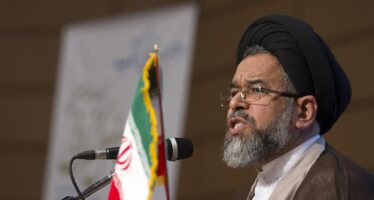Turkey’s Constitutional Court rules that jailing Demirtaş violates his rights
![]()
The decision published on Friday showed that Turkey’s Constitutional Court (AYM) has ruled that the lengthy jailing of a former HDP co-chair Selahattin Demirtaş violated his rights.
Selahattin Demirtaş has been in jail since November 2016 on terrorism-related charges. He faces a sentence of up to 142 years in jail if found guilty in the main case against him.
Demirtaş’s lawyers applied to the Constitutional Court on the grounds that their clients’ person and liberties were violated.
The AYM reviewed the applications made on 24 November 2017, 29 May 2018, 27 November 2018 and 11 December 2018 in bulk.
The court’s decision, published in Turkey’s Official Gazette, said Demirtaş detention had exceeded a reasonable period and his right to freedom had been violated, ordering the payment of compensation.
A copy of the decisions taken will be sent to the Ankara 19th High Criminal Court and the Ministry of Justice.
Demirtaş’s lawyer, Mahsuni Karaman, demanded the end of the detention in a statement he published on social media.
He added that Demirtaş was detained due to the events of 6-8 October 2016 and that the Court ruled that this detention was a violation of his rights. “As the second arrest order is based on the same reason – argued Mahsuni – Demirtaş should be released immediately.”
Related Articles
Irán demanda a Estados Unidos ante la Corte Internacional de Justicia (CIJ) por sanciones comerciales del 8 de mayo
![]()
Este 17 de julio, la Corte Internacional de Justicia (CIJ) anunció que Irán interpuso una demanda formal contra Estados Unidos debido a las sanciones norteamericanas
On Academic Labor
![]()
How Higher Education Ought to Be
The following is an edited transcript of remarks given by Noam Chomsky via Skype on 4 February 2014 to a gathering of members and allies of the Adjunct Faculty Association of the United Steelworkers in Pittsburgh, PA. Prof. Chomsky’s remarks were elicited by questions from Robin Clarke, Adam Davis, David Hoinski, Maria Somma, Robin J. Sowards, Matthew Ussia, and Joshua Zelesnick. The transcript was prepared by Robin J. Sowards and edited by Prof. Chomsky.
On hiring faculty off the tenure track
That’s part of the business model. It’s the same as hiring temps in industry or what they call “associates” at Wal-Mart, employees that aren’t owed benefits. It’s a part of a corporate business model designed to reduce labor costs and to increase labor servility. When universities become corporatized, as has been happening quite systematically over the last generation as part of the general neoliberal assault on the population, their business model means that what matters is the bottom line. The effective owners are the trustees (or the legislature, in the case of state universities), and they want to keep costs down and make sure that labor is docile and obedient. The way to do that is, essentially, temps. Just as the hiring of temps has gone way up in the neoliberal period, you’re getting the same phenomenon in the universities. The idea is to divide society into two groups. One group is sometimes called the “plutonomy” (a term used by Citibank when they were advising their investors on where to invest their funds), the top sector of wealth, globally but concentrated mostly in places like the United States. The other group, the rest of the population, is a “precariat,” living a precarious existence.
El reconocimiento de Palestina por parte de Suecia: balance y perspectivas
![]()
El pasado 30 de octubre, Suecia procedió a reconocer oficialmente a Palestina como Estado





